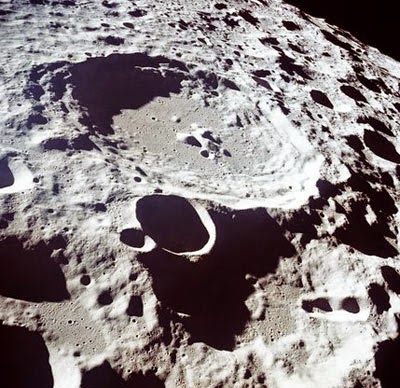I’m at home today with a sick child who decided she wants to
watch science programs about the universe.
As a nerd that is fascinated by cosmology, this made me extremely
happy! One of the programs she wanted to
see is called, “The Day the Moon was Gone”, which can be watched here. What I found fascinating about this video is
just how dependent the Earth is on the moon to support complex life, which I
think is part of an emerging cumulative case that can be made for the Earth
being fine-tuned for life.
The current hypothesis on how the moon formed is that a Mars-sized planet was flung to Earth by Jupiter’s gravitational forces. Moon rocks and the Earth’s crust share oxygen isotope ratios not found anywhere else in the solar system. This is evidence that the moon and Earth were either a single body or somehow came in contact with one another in such a way that they share surface material.
Plate Tectonics
The “impactor” hit the Earth while the Earth was still
molten, which may have allowed just the right amount of iron to be added back
into the Earth’s core. If too much iron
had been added, Earth’s gravity would be stronger making running, throwing, and
growing more difficult, but probably not a life-ender for simple life-forms. Not enough iron and the Earth would have
cooled too quickly for plate tectonics to have formed, which would have
preventing life from forming. Plate tectonics
are vital for life for the following reasons:
·
Plate
tectonics created continents for life on land and shallow seas.
·
Gases
released from volcanic activity and cracks in the crust created the atmosphere.
·
Plate
movements cycle nutrients that make oceanic life possible.
· Plate
tectonics creates a silicate/carbonate cycle that regulates the Earth’s
temperature and CO2 content.
Tides
The Sun is 400 times farther away than the moon, but has a
strong gravitational pull on the Earth. The
moon is ¼ of the size of the Earth, which is relatively large for a moon;
practically its own planet. The large mass
of the moon is needed to have enough gravitational impact to affect the Earth
and to counter the impact of the sun’s gravity.
Without the gravitational influence of the moon, the sun would create
large tidal bulges across the Earth that would create daily, world-wide,
tsunamis.
The factors of 400x distance to the sun and ¼ size of the
Earth create almost perfect solar eclipse that was instrumental in determining
the composition of the sun through spectrum analysis, and by extension, the composition of other
stars in the universe. The solar
eclipses were also used to test the Theory of General Relativity in its infancy. A slightly imperfect eclipse turns out to be
perfect for learning more about our universe.
ClimateIt’s also believed that the impact from the moon gave the Earth its current tilt angle and rotation speed. The tilt and slight wobble around the axis gives the Earth the four seasons. Without the moon, the Earth’s tilt would wobble so much around the axis that the climate change would be too extreme and too fast for complex life to adapt; one area’s tropics would be tomorrow’s ice sheet.
While the Earth was still molten, the moon’s gravity caused a
tidal bulge of lava, which created a drag on the Earth’s rotation causing it to
slow down. The result is Earth’s
rotation slowed from 8 hours per day to 24 hours per day. The faster rotation would result in stronger
winds and violent storms, and also shorter day/night cycles which would be
difficult to complex life to form. A
faster rotation would also cause the magnetic field to increase, which would
result in less radiation hitting the Earth.
Conversely, too slow of a rotation would weaken the magnetic field and
allow too much radiation into the atmosphere.
Heavy Metals
This isn’t related to the moon, but is an interesting piece
of information covered in the video. There
was a period called the Heavy Bombardment, where the Earth and the moon
underwent significant impacts from asteroids after the Earth had cooled to the
point of having a hard crust. This
allowed heavy metals such as iron, lead, uranium, gold, etc, to be near the
surface and accessible to humans. If the bombardment had occurred much
sooner, the Earth would have still be molten causing the heavy metals to
sink to the core. Much later and life
would have been obliterated. The Heavy
Bombardment isn’t critical for life to form, but it has been critical in human
life flourishing.
As Hugh Ross says, maybe this Thanksgiving we should say
thanks for not only the food that sustains our lives, but also the moon.






